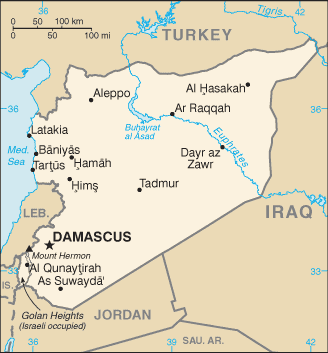Under the terms of the US-Russia brokered ceasefire in Syria, which went into effect on Monday, the two nations were to engage in joint operations against the Nusra Front after a one-week pause in strikes. US officials are now suggesting that almost certainly isn’t going to happen.
 According to the State Department, Secretary of State John Kerry called Russian Foreign Minister Sergey Lavrov today and demanded that Russia “use its influence” to ensure that humanitarian aid shipments begin to flow nationwide, warning that the US won’t engage in the joint targeting operations unless that happens.
According to the State Department, Secretary of State John Kerry called Russian Foreign Minister Sergey Lavrov today and demanded that Russia “use its influence” to ensure that humanitarian aid shipments begin to flow nationwide, warning that the US won’t engage in the joint targeting operations unless that happens.
The problem is, Russia has nothing to do with the aid shipments. The UN aid shipments have been stuck at the Turkish border, even as the fighting has stalled, because the UN hasn’t been able to get assurances they’d be allowed through all of the checkpoints between the border and their destinations.
Yet the Syrian government, the one faction with whom Russia can exert real influence, has already said they’ll let all UN aid vehicles through all of their checkpoints. The problem is, the UN has been unable to secure similar guarantees from the many rebels involved, particularly the Nusra Front, which has condemned the ceasefire.
Russia obviously has no influence over any of those groups, and while the US might be able to influence some of the rebels, there is no sign they are attempted to do so. Indeed, it may be that this was the intended result all along, that the US would have a pretext to renege on the agreement to go after Nusra, something they’ve been reluctant to do for years now.


